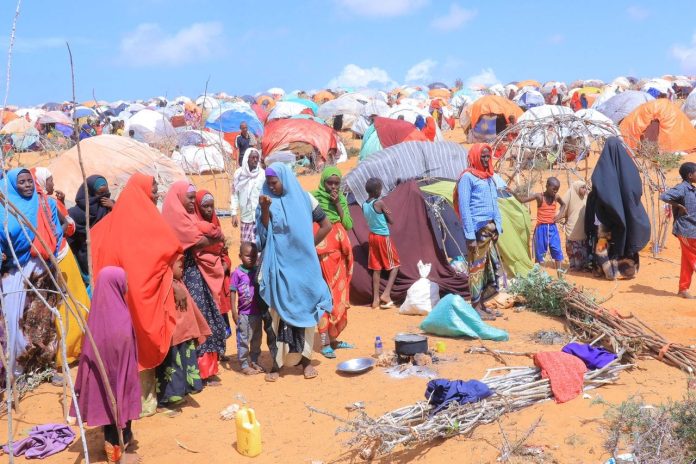MOGADISHU (KAAB TV) – In a dusty corner of Somalia’s capital, Mogadishu, 36-year-old Khadro Abdi (not her real name), bears the weight of an unspeakable ordeal endured for over three decades.
At the tender age of five, her parents took her to an elderly woman who, in the name of tradition, subjected Khadro to the brutal practice of Female Genital Mutilation (FGM).
“Just using her bare hands and a razor, the old woman cut me and stitched everyplace,” Khadro narrates.
The physical pain inflicted that day, coupled with the enduring psychological trauma, continues to cast a shadow over Khadro’s life and has wreaked havoc on her reproductive health.
With a heavy heart, Khadro recounts, “The day the woman cut me until the next morning I could not urinate. I was beaten repeatedly because my family thought I was scared, but indeed I could not urinate as the urinary tract tube was blocked.”
As per specialists, post the genital cut, the procedure involves the constriction of the vaginal opening by forming a sealing cover, leading to the obstruction of the urinary tract system.
When the woman was recalled the following morning to remedy the problem, she further caused damage as she was not a doctor.
Khadro, now a mother of three, lives with the haunting memories of that fateful day. Her plea to parents is poignant, “Imagine when part of your body, the most precious part, is cut and removed. I would urge our parents to stop this practice.”
Sadly, Khadro is not alone in her suffering. Across Somalia, countless women bear the scars of FGM, a practice predominantly performed by traditional midwives, many of whom are over 60 years old.
Dispelling the myths associated with uncut women, Khadro emphasizes, “Cutting does not make a girl descent and never protects her, but it causes harm mentally and physically.”
Medical experts, including gynaecologists Abdirahim Omar Amin, emphasize the irreversible health consequences of FGM. “Once the cut is done to the girl, the pain and the trauma stay forever. It affects her childbirth, her entire reproductive system, and can sometimes cause bleeding. That is not the only problem; it worsens the woman’s sexual relationship.”
As Khadro explains her suffering intensified following her marriage, experiencing early pregnancy complications and enduring prolonged labor.
“The pain exacerbated after my initial pregnancy. This cutting affected my reproduction health,” she remarked.
Dr. Afifo Dahir, an expert in Sharia Law, issues a stern warning, stating, “The FGM is completely not permissible, and there are no justifications in the Islamic religion. If someone cuts a girl’s genitals, it amounts to causing injury, and for wounds, the Quran says it is for an equal retaliation.”
Despite constitutional prohibitions, FGM remains pervasive in Somalia, with only Puntland State taking a significant step by unanimously endorsing a zero-tolerance FGM bill in 2021. However, the absence of national legislation criminalizing and penalizing FGM undermines broader efforts to eradicate this harmful practice.
International bodies such as the World Health Organisation (WHO) condemn FGM as a violation of human rights, causing severe health complications. As Somalia grapples with the shadows of tradition, the silent suffering of women like Khadro underscores the urgent need for comprehensive legal measures to end the practice and protect the rights of girls and women.


